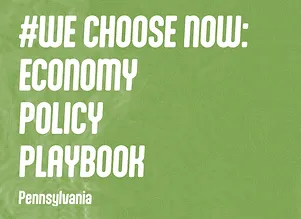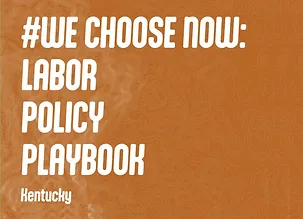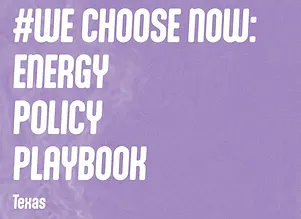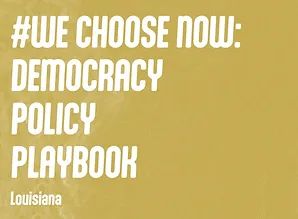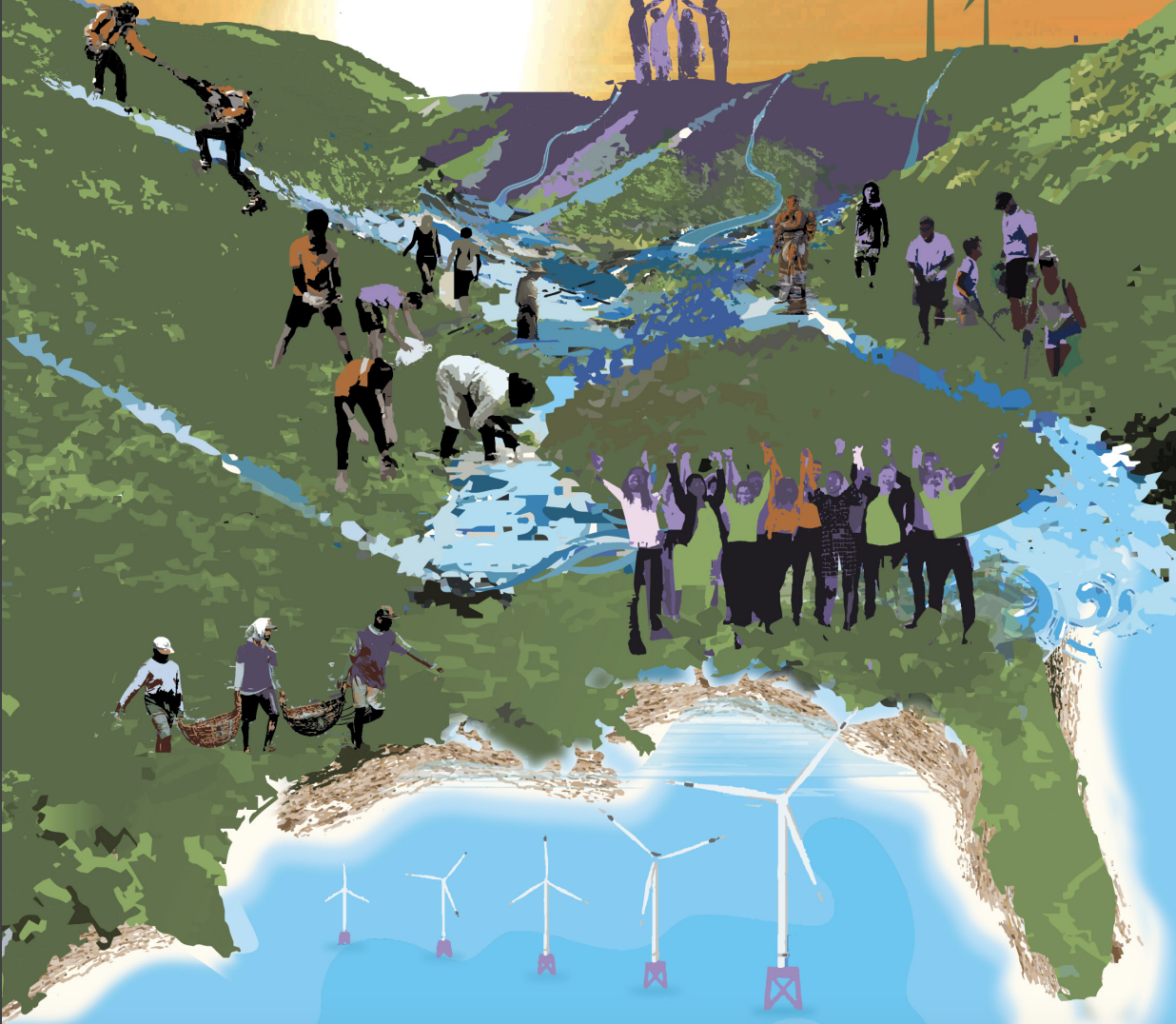We Choose Now: Gulf to Appalachia Climate Action Strategy
At this moment, the United States is advancing sweeping federal actions that could fund critical climate solutions or sink us further towards climate disaster. However, the change needed to truly shift our future from the event horizon towards climate justice will not come unless restoring power to people, community to community and region to region, is part of the solution. Policy cannot function justly outside of the context of history, community, and culture. So Taproot Earth, with research support from the Climate and Community Project, brought folks together to strategize policy differently.
The #WeChooseNow Climate Action Strategy convened over 150 frontline and allied leaders for community power building sessions rooted in ancestral wisdom and radical vision. #WeChooseNow aligned grassroots organizers and regional efforts across the Gulf South and Appalachia to affirm a path forward in repairing generational harms of environmental racism through collective governance to protect what is sacred and help our communities thrive.
The Climate Action Strategy was developed through a Gulf to Appalachia People’s Movement Assembly. While the assembly was composed of diverse representatives working on community issues across the Gulf and Appalachia, the core of these sessions were residents from four states- Texas, Louisiana, Kentucky, and Pennsylvania- with a focus on one of Taproot Earth’s Pillars of Climate Justice- Energy, Democracy, Labor, and Economy, respectively.
The purpose of the #WeChooseNow Climate Action Strategy was to build relationships across communities deeply impacted by extractive economies and cultivate regional solutions that move us towards collective healing and climate justice. Virtual and in-person gatherings held over the course of a year relied on transparent dialogue and exercises to strengthen collective analysis and decision making. The Climate and Community Project worked with Taproot Earth to translate the visions and demands articulated in the Climate Action Strategy into four in-depth policy agendas.
Pennsylvania: Economy
Ending extractive economic relations will be critical to facilitating a just transition to a hotter, but post-fossil fueled world. Pennsylvania’s economy is emblematic of these extractive relations; from centuries of fossil economy booms and busts to privatized services that send public money to wealthy investors while abandoning urban and rural communities to fend for themselves.
Our approach to imagining a post-extractive economy in Pennsylvania centers two primary themes. First, we consider intersecting affordability crises facing Pennsylvania households. Second, we contend with the role of public finance in a just transition to a post-fossil fueled, warmer world.
Kentucky: Labor
Kentucky was the heart of the labor movement–not just for Appalachia or the United States, but globally–it was systematically targeted by companies to break down labor rights and extract profit from workers and their communities for company executives and shareholders.
Kentuckians are calling for a future that includes worker-organized labor structures, increased compensation for care work, job creation and training in low-carbon industries, organizing for racial and economic justice, and policies that support housing, child care, family leave, and labor rights.
Texas: Energy
Oil and gas have deep, historical—and decimating—ties to Texas. Today the state is the largest producer of oil and gas in the United States. Like the United States in general, the impacts of increased storms, heat waves, and rising sea levels brought on by climate change are disproportionately affecting Texas’s Black and brown communities. However, companies operating in Texas have plans to expand.
This policy playbook looks from port to plug to identify strategic spots in the full energy system to intervene for transformational change. The goal: end the era of fossil fuels and supplant it with a future of energy democracy and justice.
Louisiana: Democracy
The rate of incarceration in Louisiana is higher than anywhere else in the world. Black people are 33% of the state’s population, but make up 52% of people in jail and 67% of people in prison. Both the climate crisis and mass incarceration are systems of extraction, exploitation, and domination and exposes incarcerated people, and the communities to which they will return, to the worst effects of extreme heat and storms.
Working towards police and prison abolition is a key climate intervention that will build community level democracy and self-determination. This policy playbook proposes to de-link FEMA and post-disaster funding from carceral systems, end the development of new carceral beds, and invest in community infrastructure that allows people to weather disaster.
